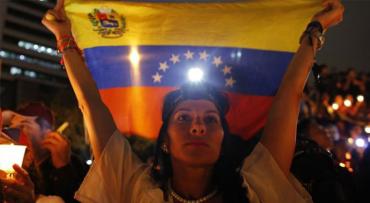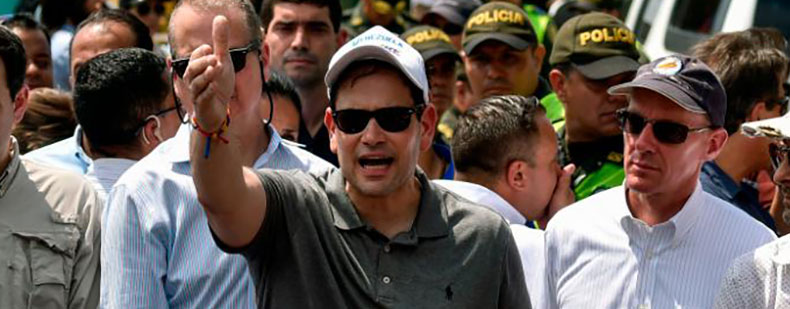
“Maduro is not a Venezuelan patriot, he is a Cuban puppet. That's what it is.” So said President Trump this week during a speech at Florida International University. Backed by a display of the U.S. and Venezuelan flags, and addressing a Miami audience populated with numerous Venezuelan transplants, his words were not veiled in the least.
He was pointedly referring to Nicolas Maduro, the longtime socialist leader of that nation, who was recently named to another term as the leader in a widely contested election. In recent weeks Trump has been elevating his language in support of Juan Guaidó, the opposition leader who has claimed a constitutional authority to assume leadership of the nation.
A growing list of nations have backed Guaidó, from those in the Central American region to many western countries, including the European Union. Maduro has been propped up in power with significant support of Russia, which has been targeting the nation’s energy reserves, as well as other commodities. China also has vested interests in the nation.

“We seek a peaceful transition of power,” said President Trump, “but all options are open.” Speaking at the video conference, Guaidó addressed the gathered crowd. “Today this fight is existential. The fight that we Venezuelans have begun after years where a majority of us have mobilized people and civic groups to obtain freedom. In this process, this international coalition and the determined support of the international community has been fundamental in this process and for democratic progress, and to allow the entry of humanitarian assistance that will save lives.”
Amid protests, Maduro has been feeling mounting pressure to abdicate his authority, both internally and externally. Basic goods are in short supply, grocery stores are vacant, and inflation has devalued the national currency to such a degree it is better served as toilet paper, which itself is extremely scarce. These are the conditions within an OPEC nation.
Swarms of Venezuelans have been swarming across the border to Columbia and food is so scarce that citizens have been raiding the zoos for meat. Taking more than a stance of verbal support for leadership change, the U.S. has been sending aid to the nation. Maduro, meanwhile, has been blocking those supplies from coming into his country, declaring they are not needed and the relief efforts are a posturing move to undermine his leadership on the world stage.
"Two days ago the first U.S. Air Force C-17 landed in Colombia loaded with crucial assistance, including thousands of nutrition kits for little Venezuelan children," Trump said. "Unfortunately dictator Maduro has blocked this life-saving aid from entering the country. He would rather see his people starve than give them aid."

Another guest making an appearance was Florida Sen. Marco Rubio, who had spent the weekend at the Colombian-Venezuelan border with U.S. officials and members of Venezuela's National Assembly. Rubio was there to ensure the supplies would make it into the country. Maduro, while saying, “We are not beggars,” has blocked a main bridge that was to be used to bring in the supplies.
Rubio has long been outspoken about changing leadership in the Latin nation. It was one year ago when he was encouraging the military to change its allegiance with the support of the global community.
In fact, his stance against Maduro, and his cabinet, has been strident enough that Venezuelan officials have cited him as a target for violence. In the fall of 2017, security for Rubio was increased due to credible threats against him being detected by federal authorities.
The U.S. senator has been unswayed by these threats. His appearing on the border to help usher aid into the beleaguered nation is a sign the U.S. government is not about to let up its pressure on Maduro. The president giving the opposition leader a voice on a national stage is a sign of international support.
Florida is likely to have a front row seat to many of the changes facing the nation under so much duress.
Brad Slager, a Fort Lauderdale freelance writer, wrote this story exclusively for Sunshine State News. He writes on politics and the entertainment industry and his stories appear in such publications as RedState and The Federalist.


